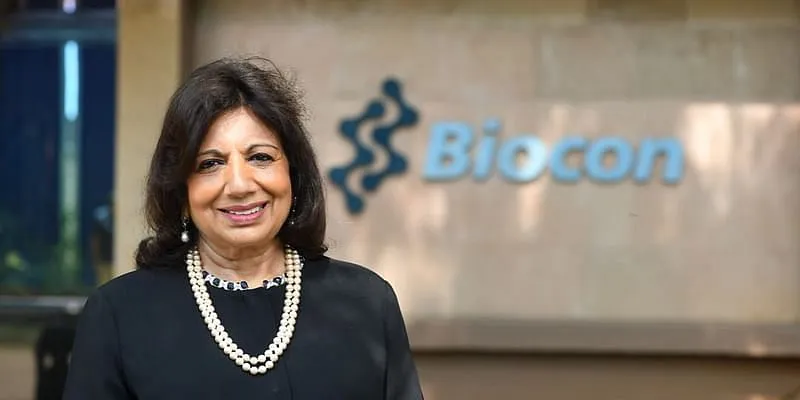University of Glasgow names new research centre after Kiran Mazumdar-Shaw, John Shaw
A University of Glasgow graduate, John Shaw along with Kiran Mazumdar-Shaw donated $7.5 million to the university in July 2019 to set up a new research hub within the university campus – the Mazumdar-Shaw Chair of Molecular Pathology.
The University of Glasgow has honoured Kiran Mazumdar-Shaw, Executive Chairperson of and Biocon Biologics, along with her husband and former Vice-Chairman of Biocon, John Shaw by naming the university’s new research centre after them. The Mazumdar-Shaw Advanced Research Centre will be home to over 500 researchers from a range of disciplines, facilitating world changing collaborative research. The £116 million ($151 million) building will officially open in June 2022.
Kiran and John donated $7.5 million to the university in July 2019 to set up a new research hub within the university campus and to create a professorial chair – the Mazumdar-Shaw Chair of Molecular Pathology.

”John and I are honoured to have this fantastic research facility bear our name. The decision to gift to Glasgow was easy; we both feel very strongly that there is a responsibility to share wealth to make a difference. The ARC is about catalysing change in research and that resonates with us. Philanthropy can be a catalyst for change, growth, improvement, and development. We are both grateful that we are in the fortunate position to contribute to John’s alma mater and help the university achieve its aspirational goals,” Kiran Mazumdar-Shaw said.
John is an alumnus of the University of Glasgow, where he completed his MA (Honours) in History and Political Economy in 1970.
The University’s Principal and Vice-Chancellor, Professor Sir Anton Muscatelli, said, “We are really grateful to John and Kiran and we wanted to ensure that this extraordinarily generous gift was recognised appropriately. The Mazumdar-Shaw Advanced Research Centre is on its way to becoming operational. It is an incredibly exciting time on campus; every week more researchers are moving in, and this summer the ARC will fully open its doors to the wider community.
“The global challenges that we face require team approaches and collaboration across disciplines, and this unique environment will encourage and support interdisciplinary research breakthroughs. The relationship we have with John and Kiran is a fantastic example of how a university can work with its communities to make a real difference in the world. Through our partnership, we are building on the University’s work with Biocon to explore initiatives such as joint PhDs which provide industry experience and help solve real world problems,” he added.
Edited by Kanishk Singh








